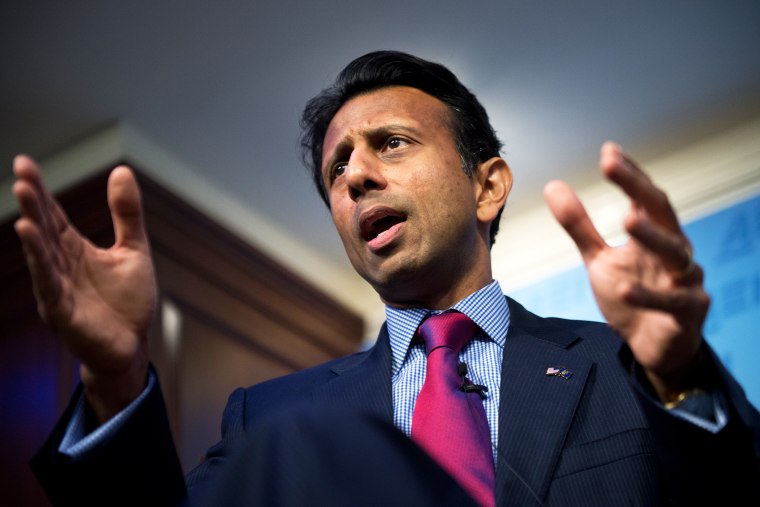HB 707 -- the "Marriage and Conscience Act" -- says the state can't take "adverse action" against someone for opposing same-sex marriage for religious reasons; sponsor Rep. Mike Johnson told msnbc he's hoping the bill will come up for a vote in the next few weeks. If passed, this law would likely ensure, for example, that the state couldn't punish a state worker who refuses to process paperwork on a name change following a gay marriage in another state, or a police officer who didn't want to police a same-sex wedding ceremony. "This Louisiana bill really does what people accused the Indiana law of doing," leading religious freedom expert and University of Virginia law professor Doug Laycock told msnbc. While Indiana's law offered up individuals accused of discrimination a legal defense that a judge could then weigh, Laycock explained, this law gives religious individuals absolute protection from state action, without balancing interests of – for instance – whether a gay individual's right to services outweighs the religious individual's freedoms.
Louisiana goes for broke with discrimination bill
Other states have dabbled in right-to-discriminate measures, but Louisiana and Gov. Bobby Jindal (R) are going further than most.

As marriage equality takes root as the legal norm in much of the country, opponents of equal-marriage rights have adopted a new set of tactics. Whereas it was common a decade ago to see Republicans pushing anti-gay constitutional amendments -- at the state and federal level -- right-to-discriminate measures have clearly become the new weapon of choice.
Arizona generated national attention last year with its foray into this area, but a gubernatorial veto quickly ended the fight. This year, Indiana created a firestorm with its discrimination statute, which policymakers were soon after willing to "fix." Arkansas scaled back its far-right drive in this area soon after.
But msnbc's Jane C. Timm reported yesterday that Louisiana Republicans are plowing ahead with a related bill of their own.
Gov. Bobby Jindal (R), not surprisingly, told msnbc the proposal is "not about discriminating against anyone," so much as it's about "religious freedom."
There's ample evidence to the contrary.
In fact, this is a rather classic example of how one official's personal ambitions can do real harm to a lot of people. Jindal wants to be president; the far-right governor is looking for a way to get attention for himself; he's eager to curry favor with social conservatives in his party's base; so he's pushing a right-to-discriminate proposal -- not because it's necessary, but because it might improve his candidacy's odds.
Indeed, in Iowa last week, the Republican governor told GOP activists, "Look, we've all been paying attention to what's happening in Arkansas and Indiana. There is an assault on our religious liberties here in America."
Even Jindal probably doesn't believe this rhetoric, but he apparently feels the need to say it anyway.
Indiana, of course, faced widespread condemnations and a private-sector backlash when it pursued it's "Religious Freedom Restoration Act," and the hope among civil-rights proponents was that the uproar would discourage other states from pursuing a similar policy. But those hopes arguably had it backwards -- Louisiana's governor would very likely welcome an ugly and divisive culture-war fight. Jindal wants to put himself at the center of the storm, valiantly fighting back against the forces of liberalism, tolerance, and respect.
His state may suffer from boycotts and condemnations, but Jindal might also see a bump in the polls, which may very well matter more to him right now.